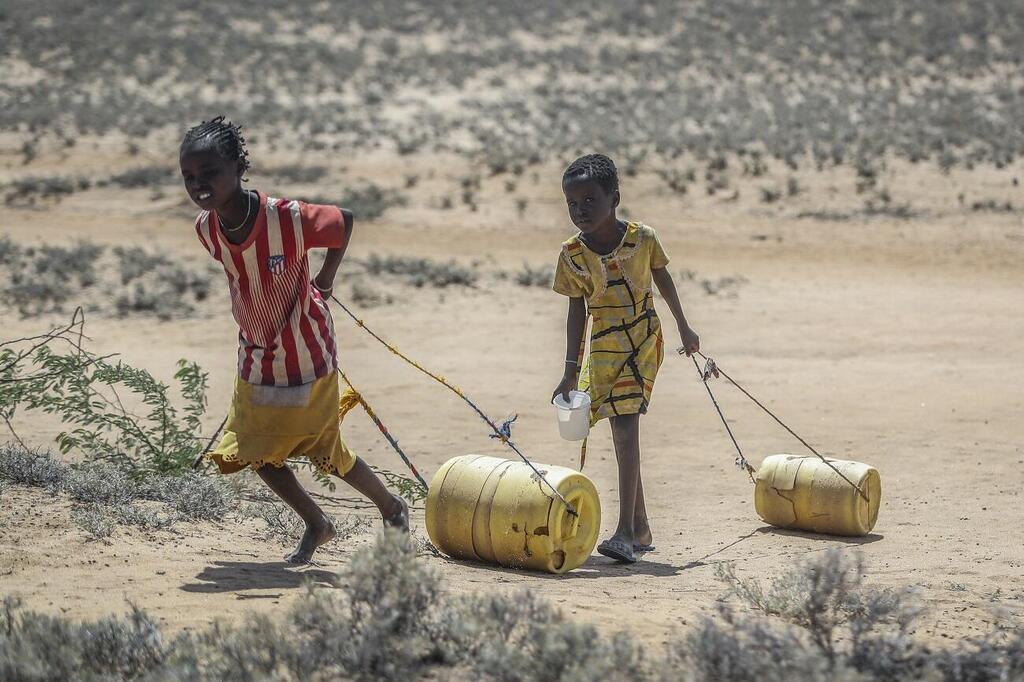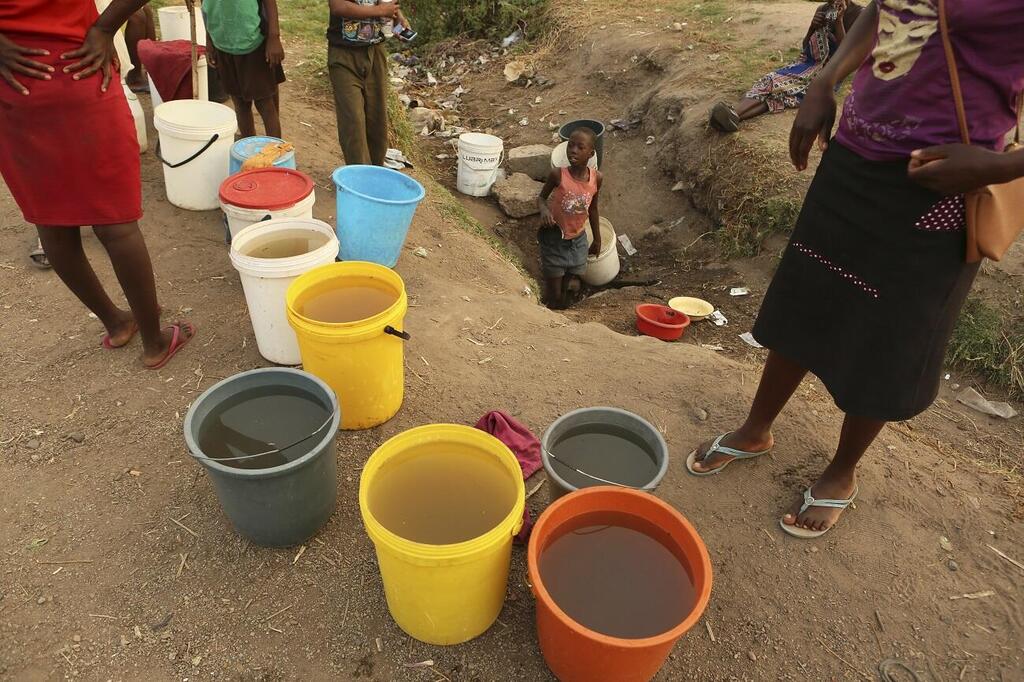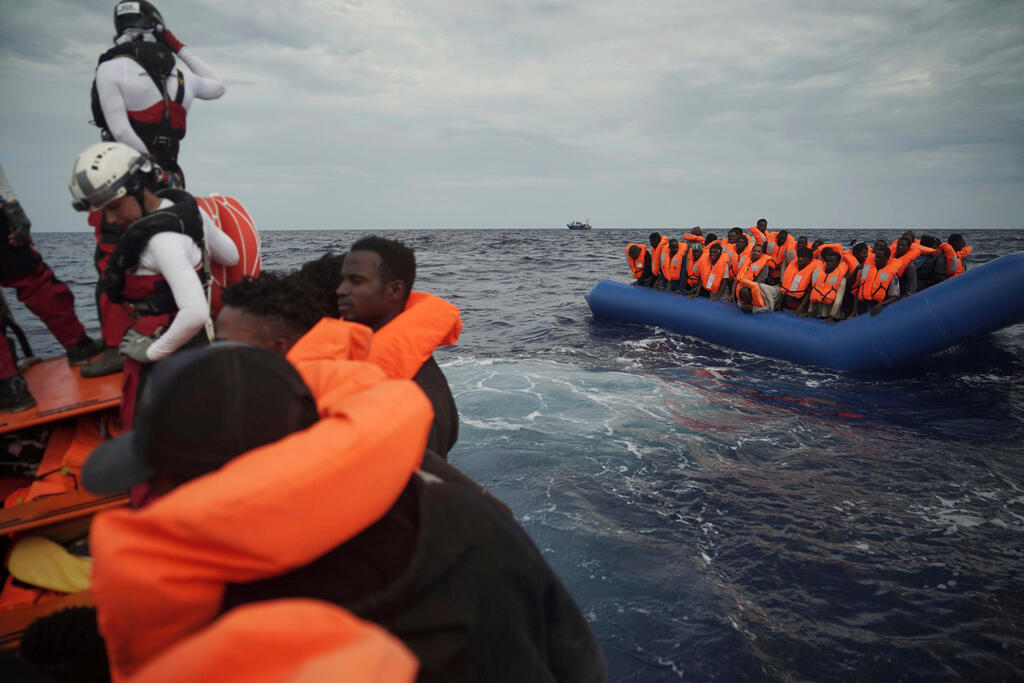Researchers are warning that floods and droughts could cause unprecedented disasters for the resource-poor population of the African continent, which lacks the ability to prepare for extreme events that are intensifying due to the climate crisis, according to a new article published in the scientific journal Nature.
Read more:
In recent years, global warming has altered rainfall patterns, intensified rainfall amounts and increased the frequency of severe weather events globally. Africa, however, is uniquely susceptible to these climate disasters compared to other regions.
Over the last two years, a devastating drought in the Horn of Africa, encompassing Eritrea, Somalia, Ethiopia, Djibouti, Kenya, Uganda, Sudan and South Sudan, has disrupted agricultural systems and regional food security. This drought has threatened agricultural growth, reduced crop yields and led to chronic malnutrition and hunger in over 20 million people, including more than five million children. Moreover, African populations also face the risk of flash floods.
Dr. Assaf Tzachor, academic director of the Abirim Program for Sustainability and Climate at Reichman University, and his fellow researchers have warned about the vulnerability of Africa's populace due to inadequate infrastructure and insufficient scientific education. He emphasized the potential for climate migration, given Israel's position as a continental corridor between Africa, Asia and Europe.
The researchers argue that "the lack of infrastructure and scientific, engineering and technical training in Africa leaves hundreds of millions of people helpless in the face of the climate crisis. They cannot seek shelter or manage their local agricultural economies."
Tzachor highlighted the considerable gap between the resources and infrastructure available to Africans compared to residents of Europe and the United States. He urged the international community to contribute more significantly to addressing this issue.
An international research team, including researchers from Israel, England, Kenya, Ethiopia and Senegal, examined approximately 8,000 weather and hydrological disasters, over 500,000 premature death cases and 2.7 million injury cases due to climate disasters over the past 20 years worldwide.
Tzachor explained that "our research began with an impartial statistical analysis of climatic, meteorological and hydrological disasters. We discovered significant discrepancies in mental trauma between Africa and other regions. For instance, for every European who dies in a flash flood, about five Africans die. For every Asian who dies in a drought, about 50 Africans die. We found these disparities were due to African countries' inability to predict, prepare for and respond in real-time to climate risks and disasters."
The team also investigated the condition of weather monitoring infrastructure, weather forecasting systems, including AI-based systems, and real-time response tools for climatic emergency events.
According to Tzachor, who led this research team, the gaps in Africa's ability to respond to climate disasters are primarily due to inadequate tri-layer systems for managing hydro-climatic emergencies. For example, Europe, North America, Asia and Australia have hundreds of advanced radar systems for weather monitoring, a stark contrast to Africa's 37.
Tzachor pointed out that it's untenable to have over 2 billion people in Africa by 2050 with only 27% of the most basic infrastructure, compared to about 50 million expected to live in Oceania and Australia.
Following their risk analysis, the researchers suggested a series of technologies and financing mechanisms that could improve the continent's situation. Tzachor and his team have started implementing these recommendations in several working groups for managing climate risks at various international organizations.
He emphasized the urgent climate crisis in Africa. "More than five million children suffer from chronic malnutrition due to severe drought right now. It's intolerable, and the world is doing nothing," he said.
As for the potential impact on Israel, Tzachor explained that climate disasters could lead to migration from Africa, with Israel serving as a continental corridor. He also noted that Israel's food security could be at risk due to its dependence on food imports from Africa, such as coffee, cocoa and fruits, which are vulnerable to extreme weather events.




